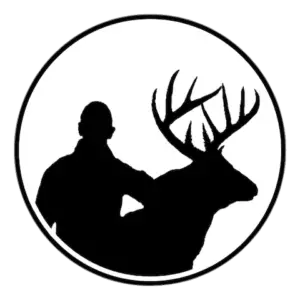As deer hunters, we all have our reasons for why we hunt public or private grounds, or perhaps both. The fact is, we don’t all have the same goals, resources, or opportunities. Even if we all had the same goals, resources, and opportunities, we don’t have the same determination, passion, or commitment. So, is public or private land best for you?
Before scrolling down the page to read the pros and cons of public land vs. private land, it’s important to consider these facts prior to deciding which is best for your situation:
- Deer don’t recognize boundaries
- Deer can’t distinguish the difference between what is public and what is private land. However, they do recognize hunting pressure. When deer know they are being hunted, they are more difficult to kill.
- Every piece of land is unique
- Some public lands will hunt better than private lands, and vice versa. Also, public lands aren’t all created equal, just like private properties aren’t all created equal. I have owned several private land properties in a few states. Some of them hunted better than others. I have also hunted public lands that hunted better than a private property I owned.
- The deer herd can be extremely different from one area to another
- Deer populations, genetics, and antler sizes can be drastically different from one neighborhood to the next. The amount of food, habitat, and hunting pressure are all examples as to why this is. Additionally, we have state laws, management practices, and diseases like EHD which influence differences in deer herds from one place to another.
As you can see, there are several reasons that make one property better or different from another. In order to understand if public or private land is the best, you first need to understand what your hunting goals are.
Once a hunter knows their goals, they can decide for themselves if public or private land is best for reaching those goals.
Hunters should be realistic in the goals they set for themselves. For example, let’s say a hunters’ goal is to kill a 150” buck every year. (I’m talking about a free-range buck that isn’t trapped behind a high fence). That goal is not achievable in many neighborhoods, townships, counties, or even states. Therefore, if this hunter lives in an area that can’t produce at least one 150” buck every year, they must be willing to travel to a location that can make that goal possible, or change the goal.
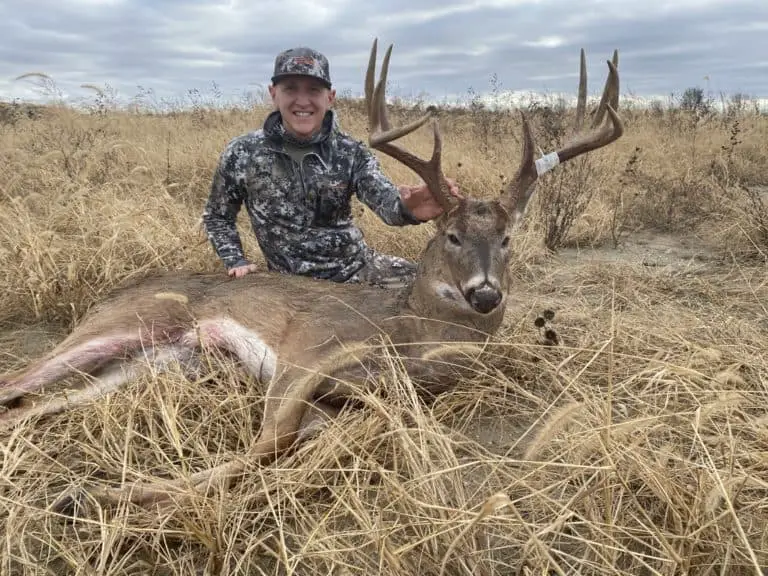
Pros and Cons of Public and Private Land Deer Hunting
Public Land Hunting - Pros
- Free or low barrier to entry
Public land hunting is usually free to the public. However, there are some special hunting areas that require a little bit of time for hunters to qualify to hunt there. For example, I used to hunt a public property that required bowhunters to shoot three arrows within a 12” circle from 20 yards away. I have also heard of public lands that required a hunter to complete 20 hours of community service prior to gaining access to hunt.
- Larger tracts of land
Large tracts of land open up opportunities. Large tracts allows hunters to cover a lot of ground. More land means more options for tree stand locations. Large public lands make it easier to still-hunt or spot-and-stalk deer. Lastly, hunters can possibly distance themselves from other hunters. More land equals more deer.
- Lots of public land
There are lots of public land hunting opportunities in the United States and Canada. Hunters can bounce around to several of these public grounds to find one that meets their hunting goals.
- Not financially responsible
If something bad happens to public property, you’re not financially responsible for it unless it’s your fault. It’s also unlikely that your hunting will likely not be impacted from it either.
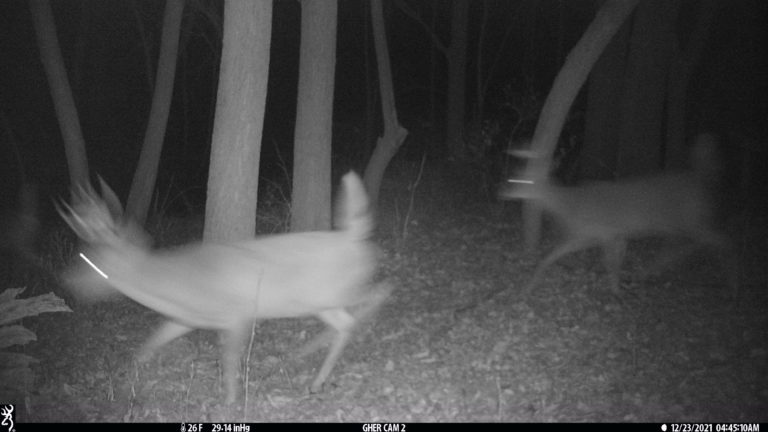
Public Land Hunting - Cons
- More hunting pressure
Hunting pressure makes it harder to kill deer, especially big mature bucks. Deer can learn that it’s safer for them to walk through high pressure areas at night. Movement patterns of deer can be difficult to predict in areas of high hunting pressure because they keep getting pushed around.
- Low ratio of deer and big bucks per hunter (usually, but not always)
Public lands usually have more hunters per square mile when compared to private lands in the same general area. This increases the likelihood of bucks on public lands not being able to survive long enough to grow a big rack.
- Poor deer management
Many public lands don’t have rules that restrict hunters from what they can shoot, or how many hunters are allowed to hunt. Therefore, many deer get shot regardless of their age, gender, or antler size.
- No control over the rules
Public land hunters don’t get to set the rules for the property like private landowners do.
- Increased odds of hunting accidents
Public hunting usually means more hunters per acre. As a result, hunting accidents are more likely to occur. Public lands attract hunters attract all kinds of hunters, including the unethical and immoral ones. These types of hunters can be a serious threat to our personal safety.
- Theft occurs frequently
If a trail camera or tree stand is left alone on public land, it will likely get stolen if people can easily discover it.
- More likely for someone to interrupt a hunt
When hunting on public land, there is always a risk of someone walking in and interrupting a hunters deer hunt. It’s possible that a deer hunt can be ruined when this happens.
- Many public hunting areas don’t allow hunters to leave tree stands on the property
Hunting can be easier, quieter, and more comfortable when hunters can hang tree stands and keep them in the woods for several months or years. However, many public lands require hunters to set up and tear down treestand for every hunt. (If theft is a concern, it’s probably a good idea to do this anyways).
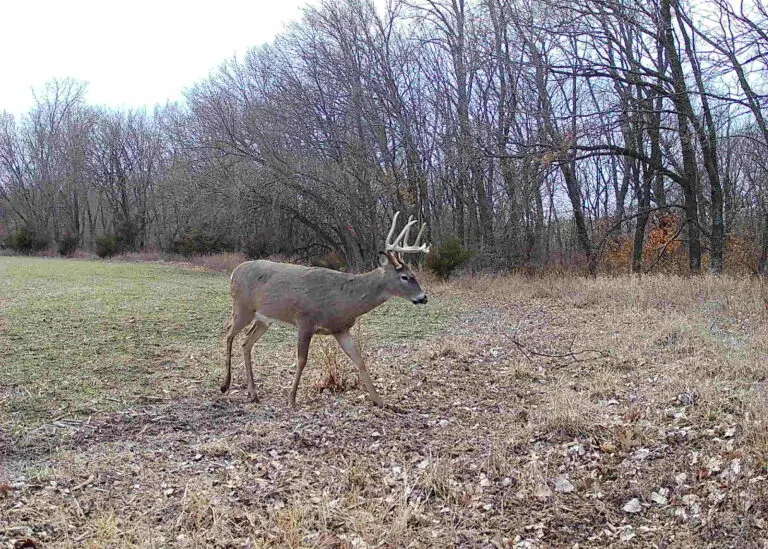
Private Land Hunting - Pros
- Less hunting pressure (usually, but not always)
Private lands usually have less hunting pressure than public lands. However, this probably wouldn’t be true if we compared an area with several small hunting tracts to a massive public property located far from populated towns. Movement patterns of deer can be more easier to predict.
- Less likely to have a hunting accident (usually, but not always)
Since public lands are more likely to have higher hunting pressure than private lands, accidents are more likely to happen. Also, hunters are more likely to avoid accidents when they are familiar with the lands they hunt and the neighbors that are hunting around them.
- Better ratio of deer and big bucks per hunter (usually, but not always)
Private lands usually result in less hunters per square mile when compared to public lands in the same general area. This increases the likelihood of bucks on private lands surviving through a hunting season and reaching an age where they can express more of their antler-growing potential.
- Ability to manipulate the land and habitat
Landowners can plant food plots, fruit trees, native grasses, etc. They can also build fences, install waterholes, cut trees, and so on. Hunters that have permission to hunt private property might also be able to get permission to make improvements to that property and increase their hunting opportunities.
- Landowner sets the rules
Landowners can decide how many deer can be shot, which bucks to shoot or not shoot, who can hunt the property, and when they can hunt it. Landowners can do whatever they want with their property as long as they follow state laws and regulations.
- Able to leave tree stands and blinds in the woods
Many public lands don’t allow hunters to leave tree stands or blinds in the woods.
- Less likely to encounter theft
Unless there is a trespassing issue on private land, theft should not be an issue. Trail cameras can be set up in wide open fields and not get tampered with or stolen.
- Less likely for someone to interrupt a hunt
On public lands, hunters never know who might walk in on them while hunting. On private land, this typically isn’t an issue unless there is a trespassing problem.
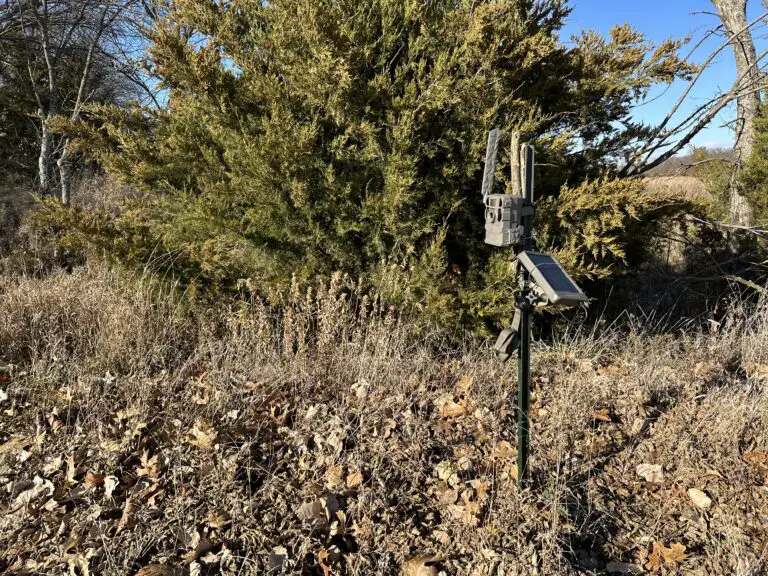
Private Land Hunting - Cons
- High cost of entry to buy land
Buying land is expensive. Once a property has been purchased the landowner is still responsible for paying taxes and insurance. We also have to consider the cost of maintaining roads, fences, mowed paths, and food plots.
- Leases can be expensive, difficult to find, and easy to lose
Leases can be difficult to come by and are usually expensive. Also, hunters can easily lose their right to lease the ground unless they have a multi-year lease agreement.
- Difficulty to gain permission from landowners
It’s not very easy to get permission to hunt on someone else’s private property. However, it can still be done. Many people are able to gain private land permission by knowing a friend or family member that will allow them to hunt. Knocking on doors is another popular way to gain permission, but it usually takes a lot of door-knocking to find success.
- Easy to lose permission
Losing permission to hunt someone else’s private property is very common. There is a long list of reasons why a hunters permission can be revoked. Several years ago, I knocked on a door and gained permission to hunt a private property where I killed a decent buck. A neighboring hunter found out about the buck and convinced the landowner to revoke my rights to hunt.
- Need to keep an eye out
Landowners and hunters need to keep an eye on the property to protect its value and manage human pressure that impacts deer. They have to watch out for and manage trespassing, wild dogs, wild fires, maintenance for roads or buildings, and so on. Several years ago I owned a property about an hour away from my home and it had been illegally logged. This impacted my deer hunting and the value of my property.
- Private lands are usually small tracts of land in comparison to public land tracts
Small tracts of land mean less options. For example, there will be fewer tree stand locations to hunt from. Small parcels restrict a hunters ability to move and chase after deer. If deer are more active on the neighbor’s property you don’t have permission to cross the property boundary to hunt them.
- No control over the neighbors
A bad neighbor can influence another hunters ability to reach their goals on private land. Also, a bad neighbor can take away from the enjoyment of the hunt itself. They can ruin a hunt by shooting guns, letting their dogs run around freely, or walking through their woods at the exact time you don’t want them to.
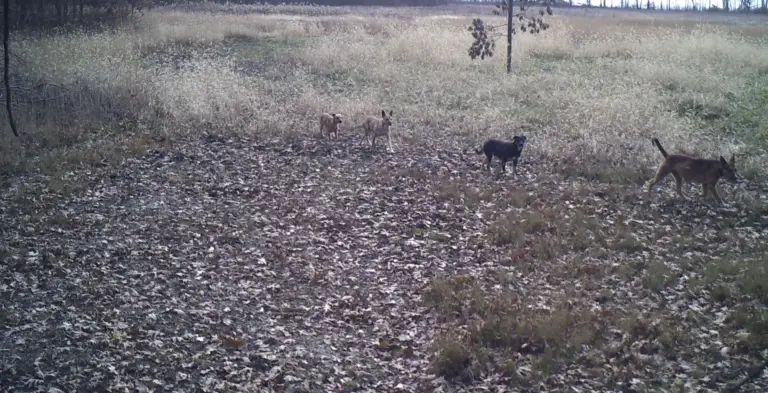
Other Considerations When Comparing Public vs Private Land Deer Hunting
- Some states hunt better than other states.
- Some counties hunt better than other counties within the same state.
- Some townships hunt better than other townships within the same county.
- Some neighborhoods hunt better than other neighborhoods in the same town.
- Public lands near large towns are usually not as good as public lands in rural areas.
- Public lands in rural areas can hunt better than private lands with lots of hunting pressure
- Private lands with low hunting pressure and landowners practicing quality deer management will likely have the best hunting opportunities in the area.
- There are specific pieces of private land in “bad” deer hunting states that will hunt better than several properties in “good” deer hunting states.
